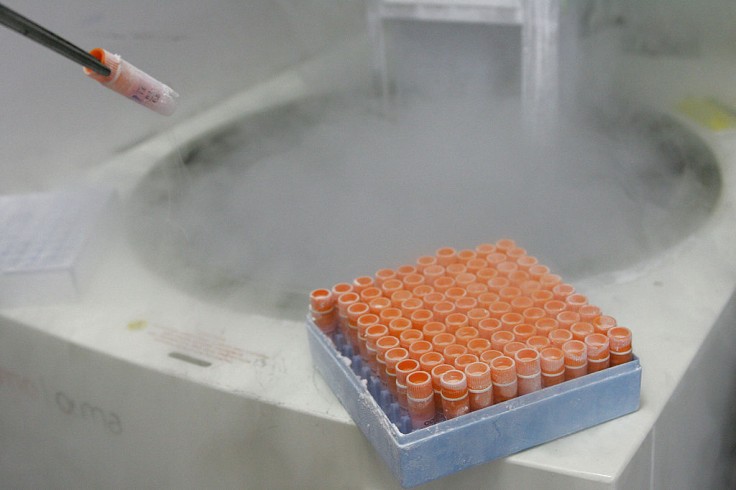
A healthy baby born from a frozen embryo stored for 27 years has set the world record for the longest frozen embryo to have successfully resulted in childbirth.
Molly Gibson, born in December 2020, could have been born in 1992, the year her embryo was donated and then frozen through the National Embryo Donation Center in Knoxville. The center also facilitates frozen embryo adoption for the unused samples, which was what happened to Molly, who Tina and Ben Gibson adopted.
Tina and Ben have struggled with infertility and decided to use frozen embryos to start their family. Molly is not their first baby from this procedure. Her older sister, Emma, was the previous record-holder of the longest frozen embryo to become a successful birth. Emma's embryo was frozen for 24 years.
A Leap of Faith
The Gibson couple knew that becoming parents to two girls, whose births were possible through the inventions of science, was a "leap of faith." Tina said she was so scared to go through the pregnancies because she felt she could lose the baby and be ripped all over again.
But Tina and Ben were fortunate to have double successes with this alternative procedure. The mom is still pinching herself from having two girls using old frozen embryos.
Dr. Jeffrey Keenan of the National Embryo Donation Center said that frozen embryos provide couples with a cost-effective option, and sometimes the only opportunity, to have a child. Years ago, the experts were not sure if the age of the embryo could affect the chances of pregnancy, but Molly and Emma's cases prove that frozen embryos could remain viable for years.
Keenan said that there is plenty of technology today to make this possible, thus giving many couples an indefinite time frame for starting a family. The National Embryo Donation Center experts said that 75 percent of embryo donations survive the process because of technology, and around 30 percent become successful implants that turn into full-term pregnancies.
How Frozen Embryo Donation Works
An extra embryo, or eggs fertilized with the sperm, could develop during the in vitro fertilization process (IVF). Some families decide to keep these frozen for future use, while some donate anonymously to help other families.
Fertility clinics that provide the freezing facility have their own way of donation management. Some clinics designate where the embryos should go, considering factors like race, but the general practice is that donors are not informed of what happened to their embryos.
The freezing process also varies per facility. In the past, slow freezing was the more popular choice, but the experts say this gave embryos a smaller chance of surviving the thawing process. After many studies, they discovered that another process called vitrification offered better outcomes.
After the thawing process, the embryo is transferred to the woman's womb. The parents who decide on the donation are informed of the characteristics of the embryo before the procedures. This usually helps couples decide if they are a match to the embryo. In the Gibson family's case, they factored in characteristics like height and weight since they are physically smaller people.
A Well-Informed Choice
However, couples are also informed of the risks since some embryos might not have enough numbers of chromosomes present to survive the implantation. Thus, some facilities conduct a biopsy before a transfer to ensure that it's healthy.
According to the experts, an embryo resulting from a normal and successful pregnancy will likely see that baby growing up into a healthy adult who could conceive her own child as well. However, more research might be needed to determine if the baby developed fetal issues that raise her risk of other diseases like cancer or diabetes.
Dr. Josephine Johnston of a bioresearch center in New York said that parents who want to go this route should be well-informed about the benefits and risks associated with using frozen embryos. Dr. Ginny Ryan of the University of Washington Medical Center said that many couples go to infertility clinics focusing on the outcome and not on the process. She said that counseling is a must because there are many considerations to weigh in this situation.
The experts said that stories like Molly's birth would become more common in the coming years since many donated frozen embryos from a decade ago will be used by hopeful parents.